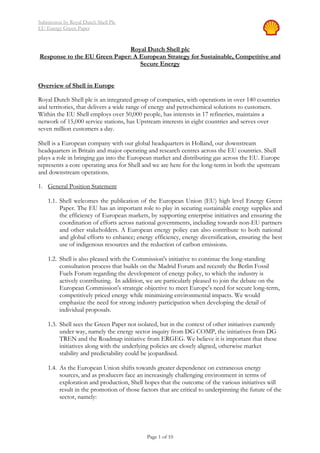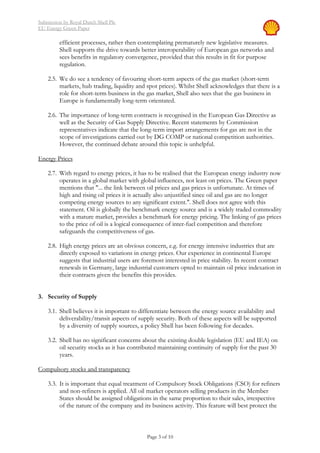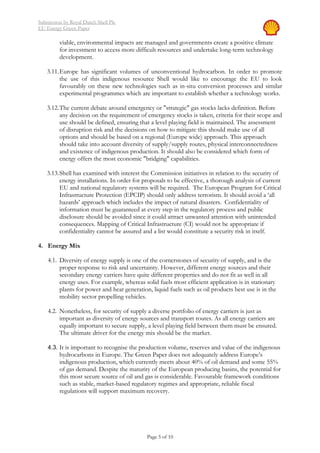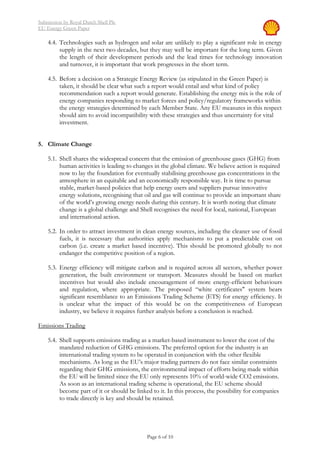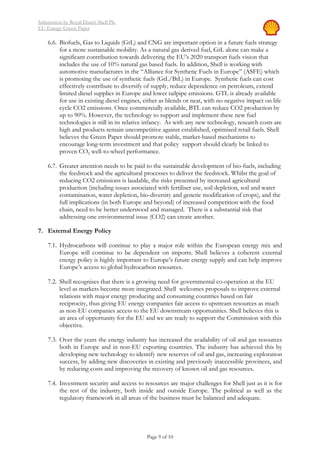This document is a submission by Royal Dutch Shell to the EU's Green Paper on energy policy. It summarizes Shell's operations in Europe and views itself as a long-term partner in both upstream and downstream operations. The submission provides comments on six priority areas defined in the Green Paper: 1) Shell supports free and competitive energy markets that encourage investment; 2) Shell supports the establishment of an integrated European gas market but believes the existing Gas Directive is sufficient; and 3) Shell believes energy security is best achieved through a diversity of supply sources and maintains the current EU/IEA framework on oil stocks is effective.
